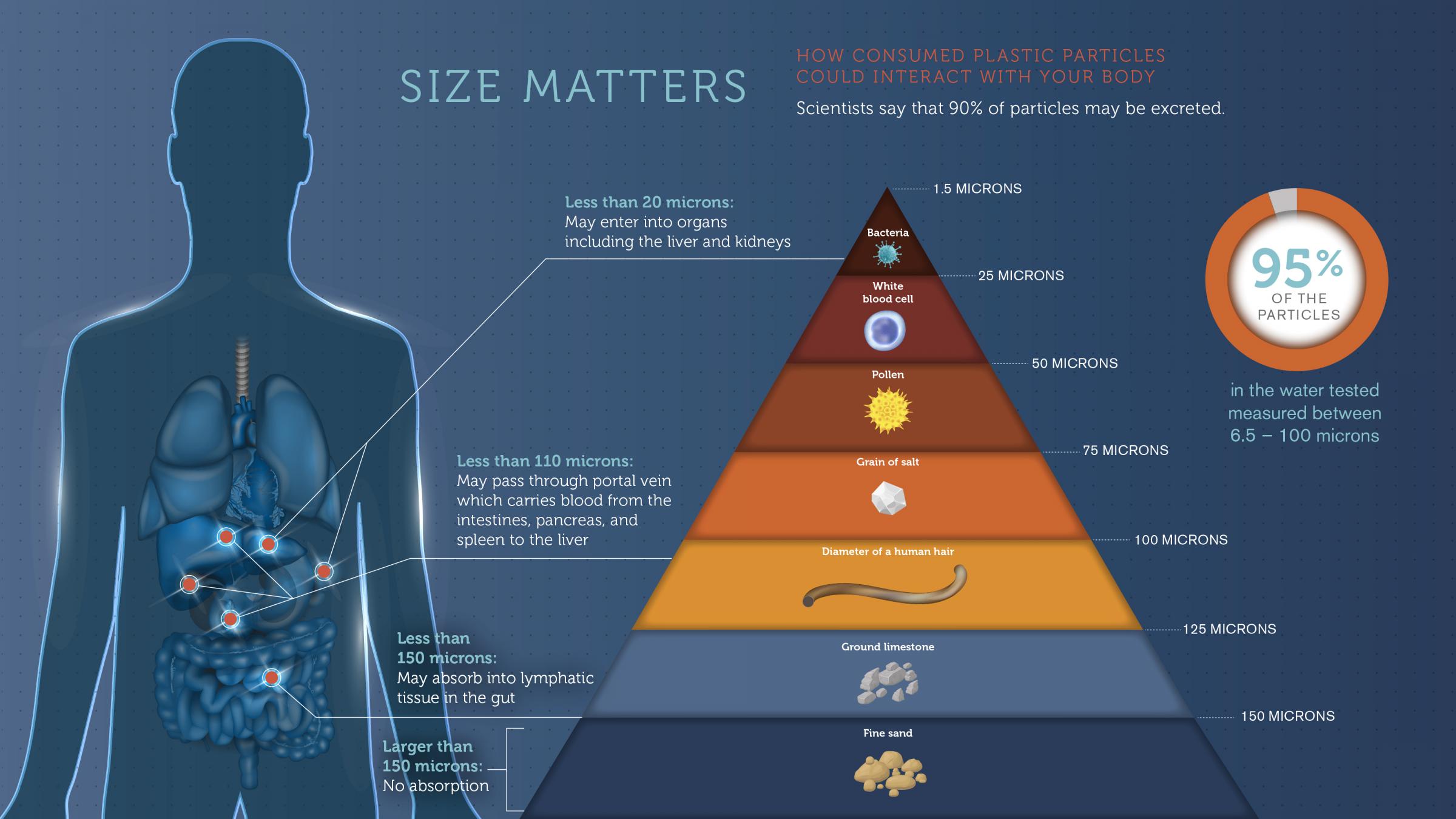The Big Picture- RSTV
Are We Drinking Plastic?
In news: A research conducted by Orb Media (the first global tap water survey of plastic pollution) reveals the presence of plastic fibers 100 microns or greater in size, in the water of nearly every location they tested. New Delhi was a part of this research as well. The findings suggested that a person who drinks a litre of bottled water a day might be consuming tens of thousands of microplastic particles each year.
Key Points:
- India’s water bottle industry regulated by: BIS + FDA
- 93% bottled water brands contaminated (contain tiny pieces of plastic) globally.
- Valued at $147 billion per year, bottled water is the fastest-growing beverage market in the world.
- As per the WHO, packaged drinking water is a lifeline for many of the 2.1 billion people worldwide who lack access to safe tap water.
- According to WHO officials, there is no evidence that the consumption of microplastic fibers has an impact on human health, but it remains an emerging area of concern.
Why should we care –
- Microplastics have been shown to absorb toxic chemicals linked to cancer and other illnesses, and then release them when consumed by fish and mammals.
- Plastic is all but indestructible – it doesn’t biodegrade; rather, it only breaks down into smaller pieces of itself, even down to particles in nanometer scale — one-one thousandth of one-one thousandth of a millimeter.
- Studies show particles of that size can migrate through the intestinal wall and travel to the lymph nodes and other bodily organs.
Conclusion:
“Since the problem of plastic was created exclusively by human beings through our indifference, it can be solved by human beings by paying attention to it. Now what we need is a determination to get it done — before it gets us.” – Muhammad Yunus, the 2006 Nobel Peace Prize laureate.
- Plastic Management: The only way to keep plastic out of the air, water, and soil is to radically rethink its design, uses, sale, and disposal.
- Creating new non-polluting materials for everyday usage

Source: https://orbmedia.org/stories/plus-plastic
Must Read: Link 1
Connecting the Dots:
- People have the right to accurate and relevant information about the quality and safety of any product they consume. Discuss the statement in the context of the recent findings.














